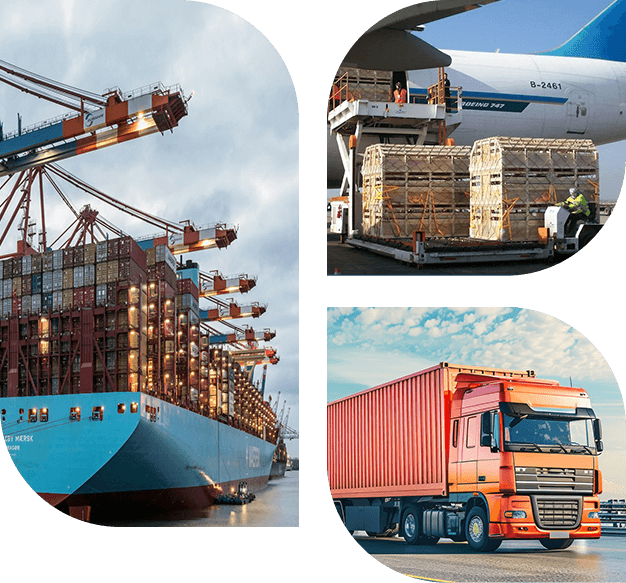Revolutionizing Logistics: Unveiling the Most Efficient Way to Transport Goods
In today's fast-paced world, the efficient transportation of goods is crucial for businesses to thrive. With the ever-increasing demand for timely deliveries, finding the most efficient way to transport goods has become a top priority. In this blog post, we will explore various innovative methods and technologies that are revolutionizing the logistics industry, ensuring faster, cost-effective, and sustainable transportation of goods.
- Embracing Intermodal Transportation:
Intermodal transportation, the seamless integration of multiple modes of transportation, has emerged as a game-changer in the logistics industry. By combining the strengths of different modes such as road, rail, air, and sea, intermodal transportation offers a more efficient and flexible solution. It optimizes routes, reduces transit times, and minimizes costs, ultimately enhancing the overall supply chain efficiency. - Leveraging Advanced Tracking and Telematics:
In the era of digitalization, advanced tracking and telematics systems have transformed the way goods are transported. Real-time tracking technologies, such as GPS and RFID, enable businesses to monitor the location, condition, and security of their goods throughout the transportation process. This not only ensures efficient route planning but also minimizes the risk of theft, damage, or loss, providing peace of mind to both businesses and customers. - Implementing Just-in-Time (JIT) Delivery:
Just-in-Time (JIT) delivery is a strategy that aims to minimize inventory holding costs by ensuring goods are delivered precisely when they are needed. By synchronizing production schedules with transportation, businesses can eliminate excess inventory, reduce storage costs, and improve cash flow. JIT delivery also enhances efficiency by minimizing lead times, optimizing production processes, and reducing waste, ultimately resulting in a leaner and more efficient supply chain. - Harnessing the Power of Automation:
Automation has revolutionized various industries, and logistics is no exception. From robotic warehouse systems to autonomous vehicles, automation streamlines operations, reduces human error, and enhances efficiency. Automated sorting and packaging systems, for instance, enable faster order fulfillment, while self-driving trucks promise to revolutionize long-haul transportation. By embracing automation, businesses can significantly improve the speed, accuracy, and cost-effectiveness of transporting goods. - Emphasizing Sustainable Transportation:
As environmental concerns continue to grow, sustainable transportation has become a key focus for businesses worldwide. Electric vehicles (EVs), powered by renewable energy sources, are gaining popularity as a greener alternative to traditional fuel-powered vehicles. Additionally, the use of alternative fuels, such as biofuels and hydrogen, is reducing carbon emissions in the transportation sector. By adopting sustainable transportation practices, businesses can not only reduce their environmental footprint but also benefit from potential cost savings and improved brand reputation.
Conclusion:
In the quest for the most efficient way to transport goods, the logistics industry is witnessing a remarkable transformation. By embracing intermodal transportation, leveraging advanced tracking systems, implementing JIT delivery, harnessing automation, and emphasizing sustainability, businesses can optimize their supply chains, reduce costs, and enhance customer satisfaction. As technology continues to evolve, it is crucial for businesses to stay updated and embrace innovative solutions that will shape the future of logistics. So, gear up for the revolution and unlock the true potential of efficient goods transportation.


